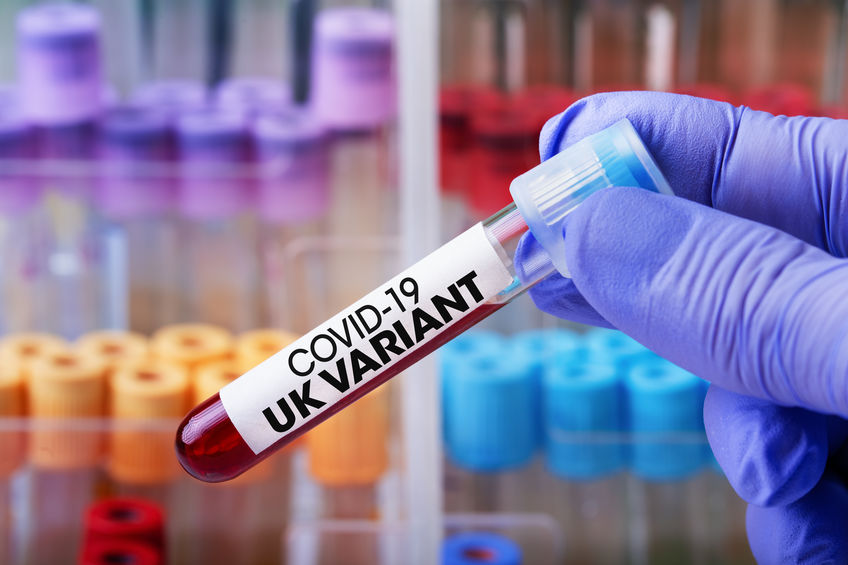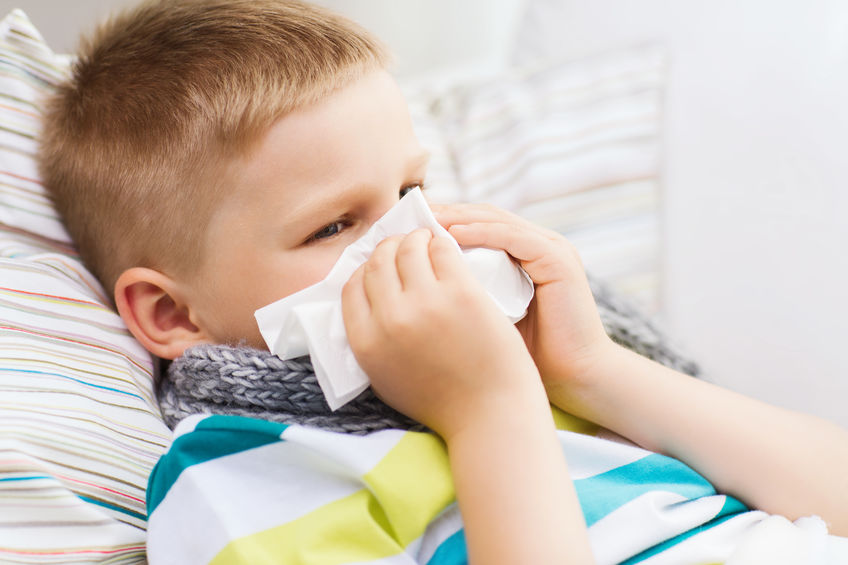Over the past few weeks, you may have heard words like “variant” and “UK strain” floating around the world of COVID-19 news. But what exactly do those words mean — and how could they affect your child?
Simply put, variants are essentially new versions of a virus.
Here are 4 things to know about COVID-19 variants.
1. Virus mutations are normal.
The fact that there are new variants of COVID-19 isn’t very surprising — it is common for viruses to change (mutate) over time. Every virus contains a genome, which is a set of genetic instructions for how to function. A mutation is just a change to this genome.
Genetic instructions tell a virus how to copy itself and spread throughout the body once someone has been infected. As the virus replicates, the set of instructions gets copied — but sometimes, there are mistakes during the process. These mistakes cause the virus to mutate (change) into another variant.
Most of the time, mutations in viral genomes don’t have a noticeable impact at all – we can see a difference in the sequence, but it behaves basically the same. However, mutations can occasionally have a dramatic impact on the virus, either positive or negative.
For example, a mutation could make a virus more infectious, like has been reported from the UK. It might give the virus the ability to infect a different host. It could make a virus that causes people to be sicker, or it could make the virus more likely to cause a mild or asymptomatic infection.
Although rare, mutations that make a virus spread and reproduce better tend to help that strain become more “dominant” and we see more cases due to that variant. Some mutations might stop the virus from infecting or reproducing itself — but then that variant dies off and we won’t see it again. It just depends on the type of virus and mutation.
2. There are several COVID-19 variants that are keeping scientists on their toes.
There are times when the mutations do have an effect on the virus — and that’s what we’re seeing right now with some of the newest variants of SARS-CoV-2 (the novel coronavirus, which causes COVID-19).
There are a few main variants that have been generating buzz recently:
- B.1.1.7 (“The UK variant”): One variant was first detected in the United Kingdom (UK) in mid-December. It has since spread to other countries, including the US and Canada.
- B.1.351 (“The South African variant”)”: Another began in Nelson Mandela Bay, South Africa. This variant has recently been detected in several countries in Europe, Asia, Africa, and the US.
- P.1 and P.2 (“The Brazil Variants”): P.1 and P.2 originated in Brazil. P.1 was detected in Japan among four travelers from Brazil. There have also been several cases of the P.2 variant reported in Britain.
These variants appear to spread more quickly and easily than other variants. In fact, early data on the variant that originated in the UK suggests that the strain may be as much as 70% more contagious than other variants.
Currently, it’s not entirely clear how the new variants impact the course of the illness if someone gets COVID-19. There is some suspicion that certain variants may cause more severe illness or be more life-threatening. However, there isn’t 100% proven, clear data just yet.
The Variant in California
There has also been talk about the L452R strain first identified in Denmark that has surged in California and been linked to recent outbreaks. However, the details on this one are a little murky.
Despite being linked to quickly-spreading outbreaks, there is currently no evidence that this variant spreads quicker than others. The variant actually first began circulating in California in May, and the recent uptick in cases may be the result of more superspreader events, changes to ventilation systems in hospitals, or simply random chance.
The takeaway: We still need more information about this variant before we can say whether or not it’s more transmissible.
3. What about variants and vaccines?
So far, it seems like most of the variants are not going to be entirely resistant to the Pfizer/BioNTech, Moderna, and Oxford AstraZeneca COVID-19 vaccines. It is possible that vaccines will offer a little less protection, depending on the variant. But in general, scientists are fairly confident that for the most part, vaccines will hold up.
And remember — even if a new variant does lower the effectiveness of a vaccine, it doesn’t mean that it won’t work at all. Plus, vaccines can often be tweaked to fight new variants.
Learn more about the COVID-19 vaccine.
4. The COVID-19 virus mutates slowly — and that’s good.
Every virus mutates at its own speed. Based on the data we have so far, researchers estimate that SARS-CoV-2 mutates at about half the speed of the flu virus.
This is very good news. One of the reasons why you and your child need a new flu shot every year is that the flu virus changes so often — and so quickly — that by the time the next year rolls around, last year’s vaccine might not be effective.
The fact that the novel coronavirus changes slowly could mean that the vaccines may offer longer-lasting protection.
What’s the best way to avoid new mutations? If we keep the virus from spreading, and infecting new people, then it doesn’t get as many chances to mutate. That’s why it’s so important to keep on following the precautions we have learned about since the pandemic began, like wearing masks, social distancing, and avoiding crowded and indoor areas. And, once we can get more people vaccinated, we’ll be able to both stop the virus from mutating and protect ourselves and others.
We still have a lot to learn.
One thing that’s changing quicker than even flu mutations?
Our knowledge about COVID-19.
It seems that we learn more and more every single day. We’ve come a long way, from finding treatments to developing vaccines in record speed. The vaccines have only been available for a few months, but they’re already undergoing widespread testing in children.
We do still have a long way to go — but no one is giving up any time soon.
Questions about COVID-19 variants or the vaccine? Talk to your child’s pediatrician to learn more.



